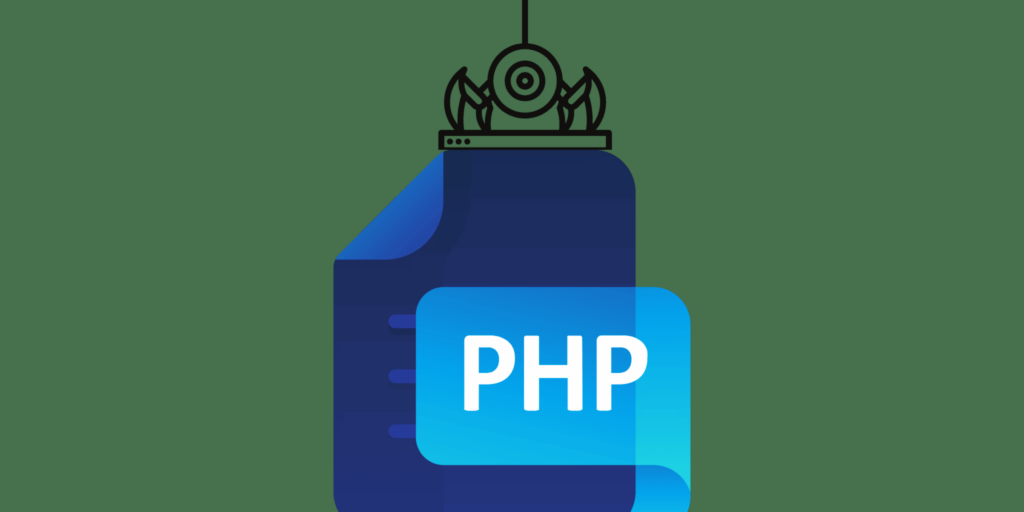Webscraping with PHP is a powerful tool that allows you to extract data from websites quickly and efficiently.
Whether you’re a developer or a marketer, webscraping with PHP can be a great way to quickly access the data you need to make informed decisions. In this article, we’ll discuss the basics of webscraping with PHP, including the tools and techniques you need to get started.
Definition of webscraping.
Webscraping is the process of extracting data from websites through automated means. This data extraction is typically done with bots or scripts designed to parse through HTML, XML, or other web-based documents to extract specific pieces of information. The data can be used for various purposes, such as analytics or further research.
Benefits of webscraping.
1. Cost-effective: Web scraping is a cost-effective way to collect data from websites. It eliminates the need to purchase expensive data sets or pay for APIs.
2. Automation: Web scraping is a great way to automate collecting data from websites. It eliminates manual work and can save a lot of time.
3. Accurate: Web scraping can collect accurate data from websites. The data is often more reliable than if it were manually collected.
4. Accessible: Web scraping can be used to access data from websites that don’t provide an API or other means of access.
5. Flexible: Web scraping can be used to scrape data from websites of any size, from small to large.

How to webscrape with PHP.
Setting up the environment
1. Install a web server, such as Apache or Nginx, and the corresponding PHP module.
2. Install the cURL library to enable PHP to make web requests.
3. Install the DOMDocument and DOMXPath libraries to enable PHP to parse HTML pages.
Writing the webscraping script
1. Create a new PHP file and specify the URL of the page you want to scrape.
2. Make a request to the page using the cURL library and save the response in a string.
3. Load the HTML into the DOMDocument object and use the DOMXPath library to extract the desired data.
4. Extract the data from the DOMXPath object and store it in a variable.
5. Output the data as needed.
Writing the code
1. Create an array of URLs to scrape:
$urls = array(
‘www.example.com/page1.html’,
‘www.example.com/page2.html’,
‘www.example.com/page3.html’,
‘www.example.com/page4.html’
);
2. Set up a for loop to loop through each URL in the array:
for($i = 0; $i < count($urls); $i++) {
// Get the current URL
$url = $urls[$i];
// Initialize a cURL session
$ch = curl_init($url);
// Set options
curl_setopt($ch, CURLOPT_RETURNTRANSFER, true);
// Execute the cURL session
$result = curl_exec($ch);
// Close the cURL session
curl_close($ch);
// Process the result
// …
}
3. Process the result of each URL:
// Process the result
$dom = new DOMDocument();
@$dom->loadHTML($result);
// Get the page’s title
$xpath = new DOMXPath($dom);
$title = $xpath->query(‘//title’)->item(0)->nodeValue;
// Get all links on the page
$links = $xpath->query(‘//a’)
Advantages of webscraping with PHP.
Easy to Use: PHP is one of the simplest programming languages to learn. It is relatively easy to use compared to other languages like Java and C++, making it ideal for people just starting in programming.
High-Speed: Web scraping using PHP is much faster than other languages. This is because of the language’s built-in functions that allow for efficient data processing without writing much code.
Cost Effective: Web scraping with PHP is also cost-effective. It is free to download and use, so you don’t have to pay for expensive resources.
Flexibility: PHP is highly flexible and can create many web scraping applications. This makes it very versatile and allows you to easily modify the code to fit your needs.
Security: PHP is used for security purposes as well. It can encrypt data, ensuring that your information is safe from prying eyes.
Automates Data Collection: With PHP, you can easily automate web scraping tasks, making it much faster and more efficient. This is especially helpful if you need to extract large amounts of data regularly. PHP scripts can be scheduled to run at specific intervals, ensuring you always have the latest data available.
Easy Access to Data Sources: PHP makes it easy to access data from various sources, including web pages, APIs, and databases. This makes it ideal for web scraping projects as it allows you to quickly extract the data you need without manually entering it.
Scalable: PHP is a highly scalable language, meaning it can be used for websites of any size. This makes it ideal for large and small businesses alike.
Improved Efficiency and Productivity: Web scraping using PHP offers improved efficiency and productivity by automating manual accessing and extracting data from websites. This automation eliminates the need for manual labor, which can save time and money.
Improved User Experience: Web scraping using PHP can improve the user experience by providing users with more relevant data. By scraping websites, users can access otherwise unavailable or difficult-to-access data. This can improve the user experience by providing more relevant, accurate, and up-to-date information.
Improved Visibility and Insights: Web scraping using PHP can help gain insights and visibility into unavailable data. By scraping the web, users can access large amounts of data that can be used to gain insights into industry trends, customer behaviors, and more.

Challenges of webscraping with PHP.
Technical difficulties
1. Parsing HTML: Parsing HTML with PHP can be challenging since there are many different types of HTML markup and the complexity of the code.
2. Captcha: Captchas are used to deter bots and can require extra steps to bypass them.
3. Security: Web scraping can be dangerous if not done correctly and can lead to security issues such as malicious code injection or data theft.
Legal concerns
1. Copyright: Web scraping can be considered a violation of copyright law if the data being scraped is not publicly available.
2. Data Privacy: Web scraping can also lead to issues with data privacy. If the data being scraped contains personal information, it can violate privacy laws.
3. Terms of Service: Web scraping can also violate the terms of service or terms of use agreements of the websites being scraped.
Unreliable data sources
When web scraping with PHP, one of the main challenges is working with unreliable data sources. These data sources can include sites that need to be updated regularly or have inaccurate information. This can lead to incomplete data sets or inaccurate results.
Additionally, some websites may have restrictions on how often they can be scraped, or they may block requests from certain IP addresses, making it difficult to obtain the desired data.
Solving webscraping with PHP challenges.
Using proxies to bypass captchas
One of the main challenges when webscraping using PHP is bypassing CAPTCHAs. CAPTCHAs are designed to prevent automated systems from accessing websites, but they can also be a major obstacle for legitimate webscrapers.
The most reliable way to bypass CAPTCHAs is to use a proxy server. A proxy server acts as a middleman between the web scraper and the website being scraped, allowing the web scraper to access the website without having to solve the CAPTCHA.
Proxy servers can be used to bypass CAPTCHAs in a variety of ways. For example, a web scraper can use a proxy server to access the website multiple times using a different IP address. This way, the website won’t be able to detect that the requests are coming from the same source.
Another way to use a proxy server to bypass CAPTCHAs is to use a CAPTCHA-solving service.
Learn about them in our post about the 7 Best Captcha Solvers.
How to speed up web scraping with PHP
1. Use multiple IP addresses: Using multiple IP addresses can help increase the speed of web scraping. This can be done using webscraping proxies to rotate the IP addresses.
2. Use multiple threads: Using multiple threads when web scraping can help speed up the process by running multiple tasks in parallel. This can be done by using the multi-threaded scraper library or another library.
3. Use caching: Caching can help speed up the web scraping process by storing the data from a previous scrape and then using that data for the next scrape. This can be done by using the Cache_Scraper library or another library.
4. Use crawlers: Crawlers can quickly traverse web pages and extract the needed data. This can be done by using the Crawler library or another library.
5. Use asynchronous requests: Asynchronous requests can help speed up the web scraping process by allowing the requests to run in the background. This can be done by using the async_scraper library or another library.
6. Optimize the code: Optimizing the code of the web scraping script can help increase its speed by making it more efficient. This can be done by removing unnecessary code, using better algorithms, and optimizing queries.
Bypass restrictions webscraping with PHP
1. Use proxies to bypass restrictions: Proxies can be used to request a website from a different IP address than the computer making the request. This can help bypass certain restrictions, such as IP-based or website blocking.
2. Use user agents to bypass restrictions: User agents are strings of text sent with each request to a website. By changing the user agent being sent with each request, it can help bypass certain restrictions.
3. Use headless browsers to bypass restrictions: Headless browsers run without a graphical user interface. This can help bypass certain restrictions, such as those based on JavaScript or HTML.
4. Use web scraping APIs to bypass restrictions: Web scraping APIs can make web scraping requests without having to perform the web scraping manually. This can help bypass certain restrictions, such as IP-based restrictions.
Summary of webscraping with PHP
Webscraping is extracting data from websites using scripting languages like PHP. PHP can pull data from web pages with the right libraries and methods. This lets the user store the data in a useful format. This can be useful for many things, like gathering information for research or making a database of facts. With PHP, web scraping can be done quickly and efficiently, allowing users to gather the data they need quickly.
Simplify webscraping with PHP.
IPBurger proxies are a great option for web scraping with PHP.
We have many plans for businesses of all sizes, and their proxies are fast, reliable, and secure.
Check out our packages and get scraping today.



